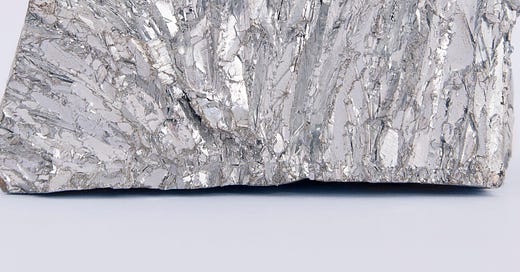Experience this Newsletter in all its online glory. Go here
In this edition…
HEALING: When you are low in zinc, consider this…
REVERENCE: Sustainable fish & seafood and other sources of zinc (reverence is the deep respect & attention to the things that truly impact healing)
EXPLORING: Deficiencies interfere with our ability to regulate stress & do the deeper work (exploring is the journey into the deeper work, meeting the parts, wounds, and survival strategies that keep us small, stuck, and suffering with persistent symptoms & feelings)
HEALING: When you have low zinc, consider this…
Zinc is an essential mineral that is involved in over 300 enzymatic reactions in the body. Here are some additional details about the various roles that zinc plays in the body:
Brain Function: Zinc is involved in regulating mood, attention, and memory. Deficiencies have been linked to depression, anxiety, and other mood disorders.
Muscle & Bone Health: Zinc is involved in the production of new bone tissue and the maintenance of muscle mass.
Kidneys & Liver Function: Zinc is involved in detoxification processes and the regulation of fluid balance in the body.
Male Reproductive Health: Zinc is found in high concentrations in the prostate gland and semen. It is essential for healthy sperm production and plays a key role in fertility.
Female Reproductive Health: Zinc plays a role in supporting female reproductive health by contributing to hormonal balance and fertility.
Catalyst: Zinc is a catalyst in many enzymatic reactions in the body, meaning it helps to speed up chemical processes and ensure that they occur properly.
Antioxidant: Zinc acts as an antioxidant, protecting cells from damage caused by free radicals and oxidative stress.
Protein Synthesis: Zinc is involved in the process by which cells create new proteins.
Collagen Formation: Zinc is essential for the formation of collagen, an important structural protein in the body, maintaining healthy skin, nails, and hair.
Regulation of Blood Sugar Levels: Zinc can help to regulate blood sugar levels and protect against diabetes.
Immune Function: Zinc is crucial for a healthy immune system, supporting the function of immune cells and aiding in the production of antibodies.
Wound Healing: Zinc plays a vital role in the process of wound healing, aiding in tissue repair and collagen synthesis.
Anti-inflammatory Properties: Zinc has anti-inflammatory effects, which can be beneficial for managing various inflammatory conditions.
Acne: Zinc's anti-inflammatory properties may help manage acne by reducing skin inflammation and promoting skin healing. It also helps drive down excess sebum production by regulating high testosterone levels.
Taste & Smell Sensation: Zinc is involved in maintaining the function of taste and smell receptors.
Digestive Problems: Zinc is essential for the proper function of digestive enzymes, and deficiency can lead to gastrointestinal issues, including changes in stools such as diarrhoea or loose stools.
Appetite & Metabolism: Zinc helps regulate appetite and supports healthy metabolism, so deficiency can lead to a decrease in appetite and unintended weight loss.
Eye Health: Zinc supports overall eye health and helps protect against age-related macular degeneration.
Thyroid Function: Zinc is involved in the production and regulation of thyroid hormones, crucial for metabolism and energy levels.
Cardiovascular Health: Zinc contributes to maintaining healthy blood vessels and blood flow.
DNA Synthesis & Repair: Zinc is necessary for the proper replication and repair of DNA.
Vitamin E: Zinc helps maintaining proper levels of vitamin E in the blood, a powerful antioxidant that supports immune function, skin health, and may have potential benefits for female reproductive health.
Birth Defect Prevention: Zinc deficiencies during pregnancy have been linked to birth defects such as neural tube defects.
Identifying the specific cause of zinc deficiency is essential for targeted treatment and prevention strategies. If you suspect a zinc deficiency or experience symptoms it is essential to seek medical evaluation for proper diagnosis and management. A holistic healthcare professional such as a naturopath, nutritionist or integrative GP can refer you to have the necessary tests such as blood test and hair tissue mineral analysis test and recommend appropriate interventions to address the underlying cause and improve zinc levels. Note: Not all zinc supplements are the same, and a professional can direct you to the most absorbable and highest quality kind.
Symptoms of low zinc can vary depending on the severity and underlying cause of deficiency. Here is a comprehensive list of common symptoms of low zinc and their underlying causes:
Keep reading with a 7-day free trial
Subscribe to How To Holistically Heal By Anthia Koullouros Naturopath to keep reading this post and get 7 days of free access to the full post archives.




